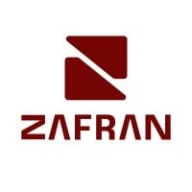


Tenable Security Center and Zscaler Zero Trust Exchange Platform compete in the cybersecurity domain, focusing on vulnerability management and network security, respectively. Tenable leads in vulnerability scanning and reporting, while Zscaler offers a broader range of network security features.
Features: Tenable Security Center provides detailed vulnerability scanning with customizable policies and comprehensive dashboards, facilitating asset management and threat prioritization. Its strong integration capacity and flexibility in creating scanning policies are highly valued. Zscaler Zero Trust Exchange Platform offers a seamless VPN integration, advanced threat protection, and robust cloud-based security measures. It integrates features like DLP and application security, making it suitable for secure remote access.
Room for Improvement: Tenable Security Center should enhance its query capabilities, report customization, and international language support. Improvements in dashboard integration and risk-based vulnerability management are also needed. Zscaler Zero Trust Exchange Platform could address speed and connectivity issues related to legacy systems and improve its pricing model. Multi-tenant environment support also requires refinement.
Ease of Deployment and Customer Service: Tenable Security Center is more oriented towards on-premises deployment in enterprise environments, with robust but sometimes slow technical support. Zscaler Zero Trust Exchange Platform focuses on cloud-based deployment, offering flexibility with hybrid and multi-cloud setups. Its responsive technical support is noted, though premium support is favored over standard.
Pricing and ROI: Tenable Security Center is often seen as costly, with expenses increasing with asset numbers. It offers decent ROI by reducing vulnerability risks and improving operational efficiency. Zscaler Zero Trust Exchange Platform is also noted for high costs but offers scalable pricing benefits for large organizations. It provides a comprehensive security solution, supporting enhanced security measures, though the higher price can be a barrier for smaller enterprises.
| Product | Market Share (%) |
|---|---|
| Tenable Security Center | 9.0% |
| Qualys VMDR | 12.7% |
| Rapid7 InsightVM | 11.0% |
| Other | 67.3% |
| Product | Market Share (%) |
|---|---|
| Zscaler Zero Trust Exchange Platform | 15.7% |
| Prisma Access by Palo Alto Networks | 11.7% |
| Cato SASE Cloud Platform | 11.5% |
| Other | 61.1% |


| Company Size | Count |
|---|---|
| Small Business | 22 |
| Midsize Enterprise | 10 |
| Large Enterprise | 27 |
| Company Size | Count |
|---|---|
| Small Business | 16 |
| Midsize Enterprise | 12 |
| Large Enterprise | 41 |
Zafran Security integrates with existing security tools to identify and mitigate vulnerabilities effectively, proving that most critical vulnerabilities are not exploitable, optimizing threat management.
Zafran Security introduces an innovative operating model for managing security threats and vulnerabilities. By leveraging the threat exposure management platform, it pinpoints and prioritizes exploitable vulnerabilities, reducing risk through immediate remediation. This platform enhances your hybrid cloud security by normalizing vulnerability signals and integrating specific IT context data, such as CVE runtime presence and internet asset reachability, into its analysis. No longer reliant on patch windows, Zafran Security allows you to manage risks actively.
What are the key features of Zafran Security?
What benefits can users expect from Zafran Security?
In industries where security is paramount, such as finance and healthcare, Zafran Security provides invaluable protection by ensuring that only exploitable vulnerabilities are addressed. It allows entities to maintain robust security measures while allocating resources efficiently, fitting seamlessly into existing security strategies.
Get a risk-based view of your IT, security and compliance posture so you can quickly identify, investigate and prioritize your most critical assets and vulnerabilities.
Managed on-premises and powered by Nessus technology, the Tenable Security Center (formerly Tenable.sc) suite of products provides the industry’s most comprehensive vulnerability coverage with real-time continuous assessment of your network. It’s your complete end-to-end vulnerability management solution.
Zscaler Zero Trust Exchange enhances security with seamless cloud-based connectivity and VPN-less operation, offering integration with multiple identity providers and advanced security features, suitable for remote work environments.
Zscaler Zero Trust Exchange provides secure, adaptive connectivity without traditional VPNs, allowing organizations to replace legacy systems and bolster remote work security. The platform offers cloud-based protection, single sign-on, dynamic URL categorization, and scalable solutions. While advanced security features like DLP and threat protection enhance data protection, users may face issues with speed, connectivity, and some customization options. Integration challenges, latency due to multi-tenant hosting, reporting delays, and licensing costs require consideration. It supports secure internet access and private application security, ensuring traffic control and data compliance.
What are the key features of Zscaler Zero Trust Exchange?Zscaler Zero Trust Exchange is deployed across industries to secure remote access and enforce zero trust principles. Organizations in finance, healthcare, and technology sectors utilize it for secure internet access and visibility into cloud applications, enhancing performance and compliance in dynamic environments.
We monitor all Risk-Based Vulnerability Management reviews to prevent fraudulent reviews and keep review quality high. We do not post reviews by company employees or direct competitors. We validate each review for authenticity via cross-reference with LinkedIn, and personal follow-up with the reviewer when necessary.